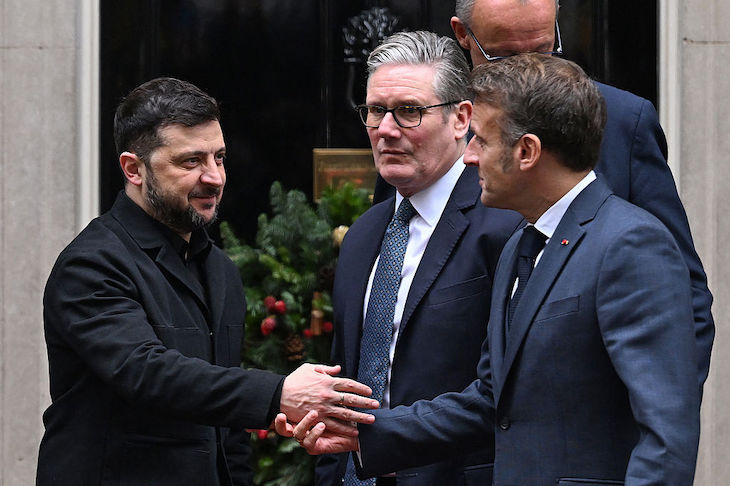In October 1972, Wael Zwaiter, the representative for the Palestinian Liberation Organisation in Rome, returned to his apartment building on Piazza Annibaliano. After entering the lobby and pressing the button for the lift, he was ambushed by two Mossad operatives lying in wait who shot him 11 times and left him to die in a pool of blood.
Within hours, the four-man hit squad and their large support team had left Italy to return to Israel. The first retribution killing in response to the massacre of 11 Israeli athletes by Palestinian terrorists at the Munich Olympics in September 1972 had been successful. Operation ‘Wrath of God’ was underway.
Over the next year, members of Black September (a breakaway militant faction of the Palestinian group Fatah) and the PLO thought to be involved or complicit in the slaying of Israelis were systematically wiped out across Europe and Lebanon. Paris saw exploding telephones, shootings and car bombs, bombs were placed under hotel beds in Nicosia and Athens, and commando raids descended on apartments in Beirut. Nowhere was safe from Mossad’s elite ‘Caesarea’ division and its highly trained assassins.
Israel’s actions prompted a diplomatic crisis, with widespread condemnation of its violation of sovereignty and undermining of European law enforcement. But for Israel and its Prime Minister Golda Meir, Munich was a turning point. It was now an issue of survival and they were prepared to trample on the niceties of international relations to ensure it. This was a new doctrine: no terrorist could be allowed to feel safe abroad.
It’s hard not to spot the parallels with Israel’s strike on the Hamas leadership in the Qatari capital of Doha this week. The Gulf state of Qatar has hosted Hamas’s political leadership since 2012, when the Obama administration asked them to create a diplomatic channel with the otherwise secretive and elusive rulers of Gaza, amidst fears they were planning to create a headquarters in the enemy territory of Tehran.
Qatar is a key US and UK ally. With 10,000 US troops stationed at the largest US military base in the Middle East at Al Udeid airbase outside Doha and the forward headquarters for CENTCOM which coordinates all US defence in the Middle East, Central Asia and parts of South Asia, the country has hitherto been off-limits for targeted killing.
Whether it was the recent murder of six Israelis by Palestinian gunmen at a Jerusalem bus stop or frustration at Hamas’s refusal to release Israel’s remaining hostages being tortured in tunnels under Gaza City, the Doha attack may be a sign that Israel has reached a similar ‘never again’ point of decision to Munich and is willing to once again run roughshod over its alliances to kill its enemies.
Recent statements by the IDF’s Chief of Staff Lt. Gen. Eyal Zamir seem to confirm as much. He has warned that ‘the bulk of Hamas’s ruling leadership that remains is abroad, and we will reach them too’, promising to ‘carry out this mission everywhere, at any range… to settle accounts with our enemies…’
So where might Israel strike next? Europe has become a hotbed for Hamas-linked networks and their affiliates. In the UK, Israel has identified Muhammad Sawalha and Zaher Birawi as Hamas operatives active in NGOs here.
Sawalha ran the group’s terrorist operations in the West Bank and fled to Britain in the 1990s to escape Israeli justice. He now heads the British Muslim Initiative and has been accused of facilitating funds flowing to Hamas operatives in its military wing. He was named in a US Department of Justice indictment as holding secret talks about ‘revitalising’ terrorist acts in Israel and helping to launder money to support activities in Gaza and the West Bank. He has repeatedly praised terrorism, including the use of suicide bombings and rocket attacks on Israeli civilians.
Birawi, a Palestinian-British journalist was named in parliament as a ‘senior Hamas operative in Europe’ by Labour MP Christian Wakeford, who described him as a ‘serious national security risk’. Like Sawalha, he moved to the UK in the 1990s and is reported as having ‘close ties to Hamas’ including through a pro-Palestinian NGO with Hamas links. He was one of the key organisers of Greta Thunberg’s ‘Freedom Flotilla’ against Israel.
In February 2025, four alleged Hamas members went on trial in Berlin accused of organising weapons caches across Europe for later use in attacks against Israeli and Jewish targets. Plans to attack the Israeli Embassy and Tempelhof Airport both in Berlin, along with the US Ramstein Airbase, were being developed.
As part of the same international plot, Danish authorities also arrested several Hamas suspects along with one suspect in the Netherlands, where Dutch intelligence revealed that Hamas were present and operating on their soil.
Modern day Mossad has a much wider arsenal than its colleagues in the 1970s
In May 2025, Germany issued a European Arrest Warrant for Majed al-Zeer, who is suspected by the German authorities and the US Treasury of coordinating Hamas activities including fundraising and planning attacks for Hamas across Europe. Linked to numerous front organisations or proxies for Hamas, the German Home Office describes him as ‘Hamas’s secret representative in Germany.’. Currently being hunted in Sweden, it’s alleged he may have fled to Turkey.
NATO ally Turkey has become a major base for Hamas officials and their networks since Hamas founded an office there in 2012. As one Western intelligence official put it, ‘Hamas is transforming Istanbul, under Erdogan’s nose, into a modern version of 1980s Beirut with warring terrorist factions… This could become a base for carrying out terrorist attacks across Europe.’
Turkey hosts Zaher Jabarin, a founding member of the al-Qassam Brigades – the military wing of Hamas, who is now the head of Hamas’s Financial Bureau and the leader of its West Bank operations. He is said to be the overall commander of Hamas’s base in Istanbul, directing terrorist attacks within Israel.
Jabarin is joined by Suhail al-Hindi, a member of Hamas’s political bureau and a prominent spokesman for Hamas in Turkey. Notably, the city is also the base for Hamas Deputy Leader Khalil al-Hayya, who was targeted in the Doha strike, making it a prime location for future Mossad operations.
Modern day Mossad has a much wider arsenal than its colleagues in the 1970s. It may opt for a rerun of Operation Wrath of God, using lethal means to strike fear into its enemies and with all the diplomatic blowback that would produce. Or it may reach for a sophisticated non-lethal toolbox ranging from financial interference and cyber sabotage to psychological operations and lawfare to fly under the radar while making the lives of Hamas operatives in Europe and the Middle East a living hell.
Wherever Israel chooses as the next front in its struggle with Hamas and whatever its means, the war is going global and could be coming to a street near you.








Comments